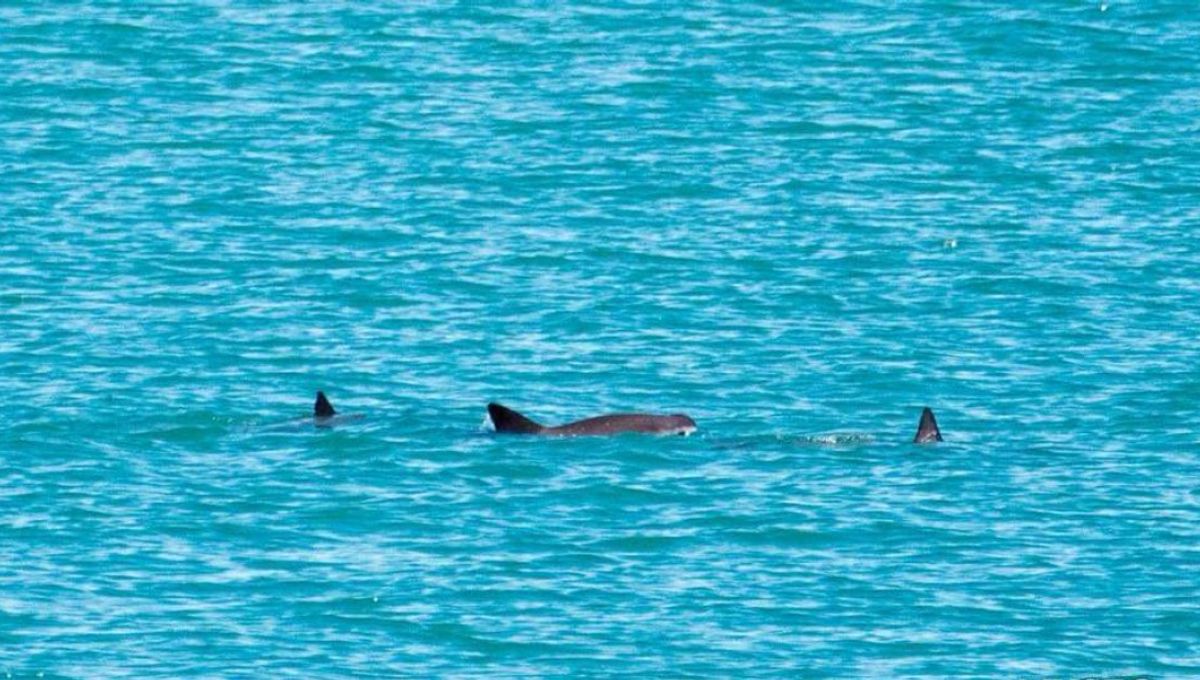
The results of the 2024 Vaquita Survey are in, and it’s a mixed bag for the world’s rarest mammal. According to Sea Shepherd, who conduct the annual survey, the data shows 6 to 8 vaquita porpoises were sighted during the survey, a decline from 2023 when 8 to 13 individuals were observed. There were no newborns seen in 2024 either, but one healthy yearling vaquita porpoise was seen.
“While these results are worrying, the area surveyed represents only 12 percent of the total area where vaquitas were observed in 2015,” said Dr Barbara Taylor, leader of the comprehensive evaluation, in a statement.
The estimate of 6 to 8 individuals is also the minimum estimate, with a 75 percent probability, while there’s a 25 percent probability that the actual number is more like 9 to 11. These estimates come down to the methodology used, called Expert Elicitation, and that the study area focused on the Zero Tolerance Area and Extension Area of the vaquitas’ known hangouts.
“Since vaquita move freely within the Vaquita Refuge, we must extend the survey using acoustic detection to determine where the vaquitas are going. Vaquitas outside the sanctuary provided by concrete blocks with hooks will need protection from ongoing gillnetting, vaquitas only threat.”
The survey occurred on May 5 to 26, 2024, led by the Sea Shepherd Conservation Society in a small region of Mexico’s Upper Gulf of California. Having been issued an extinction alert by the International Whaling Commission (IWC) – the first in 70 years – it’s a critical time for vaquita porpoises, who are estimated to have as few as 10 individuals left in the wild.
“Sea Shepherd’s commitment to the Vaquita’s survival is absolute,” added Pritam Singh, Chairman and CEO of Sea Shepherd which has been protecting the Vaquita since 2015 through Operation Milagro in partnership with the Mexican Government.
“Along with the Mexican Government, we will re-double our efforts to protect this species, and in the coming weeks we will support [the Natural Protected Areas Commission of Mexico] CONANP as they deploy new technologies to help find Vaquita, bolstering our ability to defend the most endangered marine mammal on earth.”
The survey has been running annually as an independent scientific investigation into the surviving population of the vaquita porpoise, Phocoena sinus. It’s conducted in the UNESCO-recognized Vaquita Refuge, a federally protected area where gillnet fishing is banned – one of the biggest threats to these animals.
According to Sea Shepherd, illegal fishing gear in the Vaquita Refuge has been pivotal in their downfall, and since 2015, they have been working with Mexican authorities to remove all traces of gillnets. As air-breathing mammals, vaquitas can drown when they get ensnared in human rubbish, and gillnets are particularly dangerous when it comes to getting tangled.
The survey is now being extended into July and August, as announced by CONANP, including an extension into a recently favored vaquita habitat. The teams will deploy 30 acoustic detectors to listen for vaquita in areas where vaquita were acoustically and visually detected in 2015, with hopes there are more healthy individuals out there.
Source Link: Just 6 To 8 Individuals Of The World's Rarest Mammal Sighted In Vaquita Survey